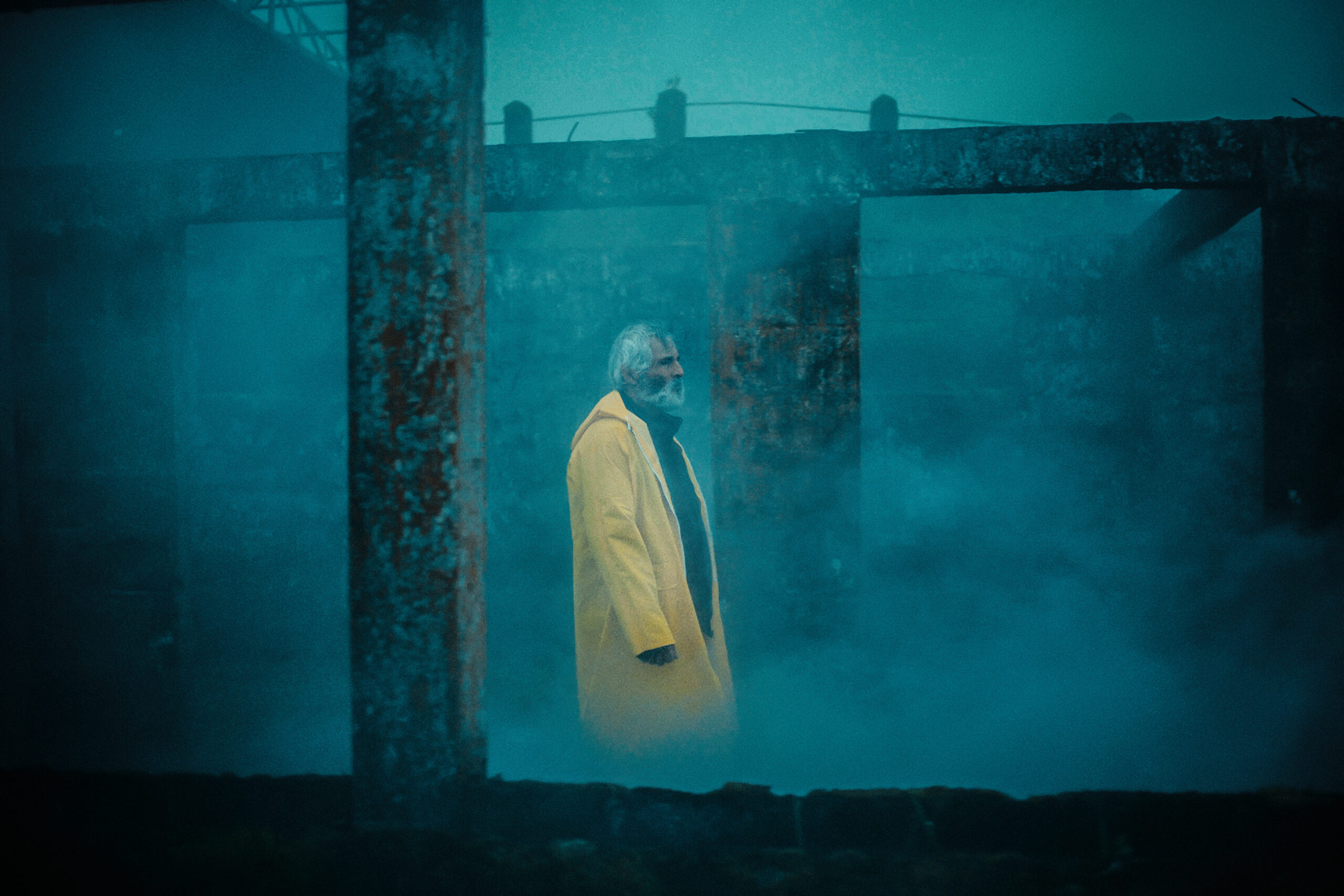Domingo and the Mist
Domingo y la niebla
VERDICT: In Costa Rica's Oscar entry, magic realism meets environmental degradation in the austere tale of a widower’s resistance against ruthless developers.
(Originally reviewed May 25, 2022)
Costa Rica has become increasingly visible on the festival circuit, with several shorts, including this year’s Night Light by Kim Torres, competing for the Palme d’Or and the feature film Domingo and Mist premiering at Cannes in Un Certain Regard. It is the second feature by Ariel Escalante Meza (after The Sound of Things in 2016), who has worked as editor in four Latin American feature films, including Costa Rican Sofia Quirós’ Black Ash (Ceniza negra, Cannes 2019). Domingo should find its warmest welcome at film festivals and art house cinemas, though a certain portion of Latin American streaming fans are becoming impatient with magic realism and seek more dynamism and faster pacing in their movie preferences.
Domingo, the film’s main character, is a complex, tormented man. Facing expropriation of his home for the construction of a highway, he stubbornly refuses to sell the land despite increasing threats and hostilities from the developers. He accuses neighbors who yield and move out of being traitors. As pressure mounts, he has to face his own fragility and think of his daughter’s needs.
In the main role, Carlos Ureña is a magnetic, Shakespearean presence on screen. He convincingly interprets an old widower expiating his sins, his dignity tinged by guilt. His daughter Sylvia (Sylvia Sossa) pleads with him to leave and pierces his silence by reminding him of his past drunken and abusive behavior. Domingo seeks oblivion in guaro, the local alcoholic brew, and in conversations with his deceased wife, who appears as a dense mist invading his home and habitat. As the highway construction proceeds, Domingo fears he will lose this remaining connection to his wife. Escalante uses the mist as a metaphor for grief and mourning, and it becomes a recurrent leitmotif in his story.
The film was shot on a tight budget and is deliberately bereft of CGI effects, which goes well with Escalante’s austere, spartan style where silence is often more eloquent than words. Dialogue is sparse but unravels facets and motivations of the characters. Simple items are heavy with significance: his wife’s aprons or a single, eloquent bullet served as a warning. The pace is slow but builds suspense as plot layers are peeled away.
The cinematography is meticulous, carefully framing each tableau, and ominous in the nocturnal scenes, where the hunted becomes the hunter as a hand-held camera follows Domingo trudging through muddy roads and rain forests. Intimate scenes are rare, since Domingo and his daughter keep a calculated distance. The few human connections he makes are with drinking buddies and his sole remaining cow, as the dairy farm he inherited is ruined. That animal companion will become the last straw, as his resistance takes a violent turn.
Well-timed sound effects contrast the mechanical roar of heavy machinery with the melodic croaking of frogs and human breathing. The dead wife’s voice-overs, however, seem jarring, introducing a poetic stream of consciousness that appears to belong to a different movie. The music ranges from soft strings and percussions to choral staccatos. The sharp, wailing soprano in the finale changes the film’s tone from contained to melodramatic, as the screen is drenched in fire, and we too begin to see a ghost walking into the mist.
Director, screenplay: Ariel Escalante Meza
Cast: Carlos Ureña, Sylvia Sossa, Esteban Brenes Serrano, Aris Vindas, Janko Navarro
Producers: Felipe Zuñiga, Nicolas Wong, Gabriela Fonseca, Julio Hernandez and Ariel Escalante
Cinematography: Nicolas Wong Díaz, CCR
Art and Costume design: Celeste Polimeni
Editing: Lorenzo Mora Salazar
Music: Alberto Torres
Sound: Marco Salaverría
Production companies: Incendio Cine (Costa Rica), Doha Film Institute (Qatar), Centro Costarricense de Producción Cinematográfica (Costa Rica)
World sales: Films Boutique
Venue: Cannes Film Festival (Un Certain Regard)
In Spanish
92 minutes

